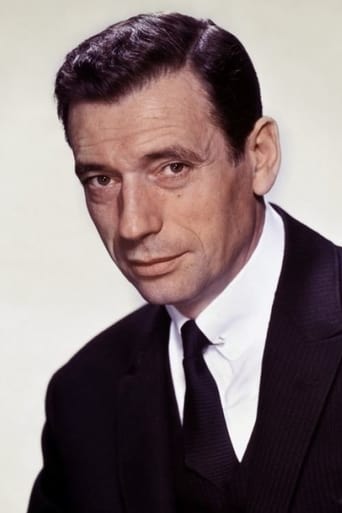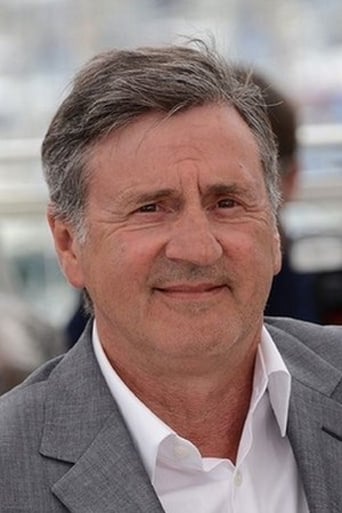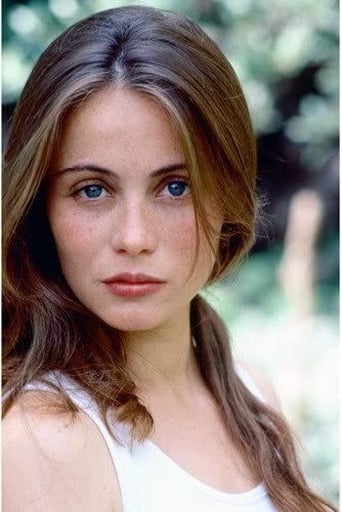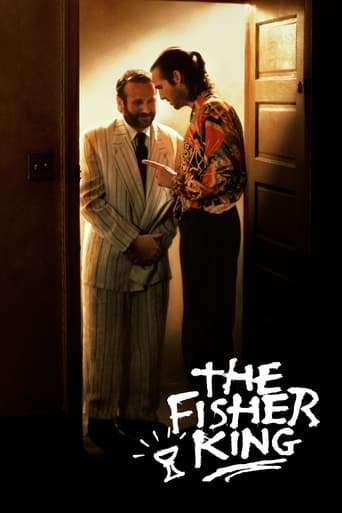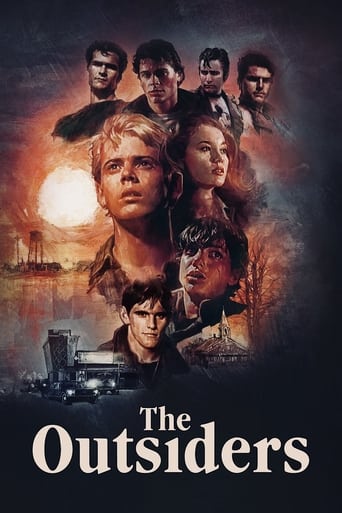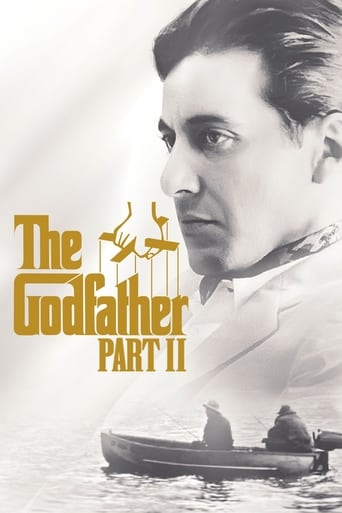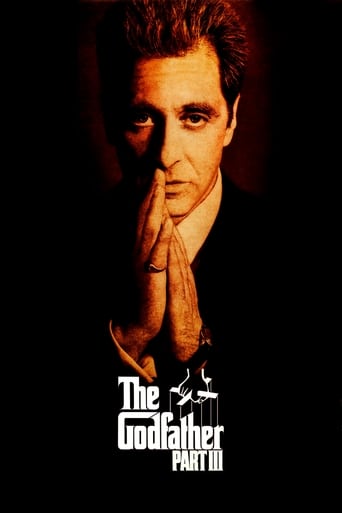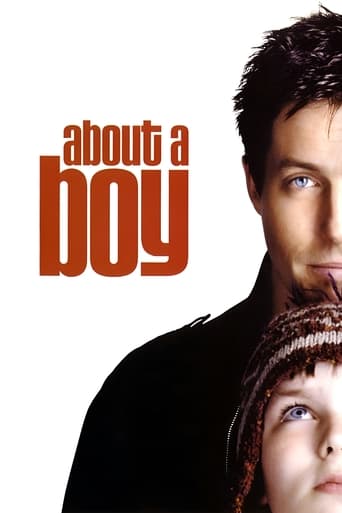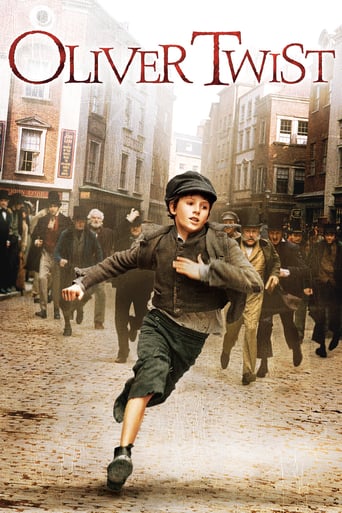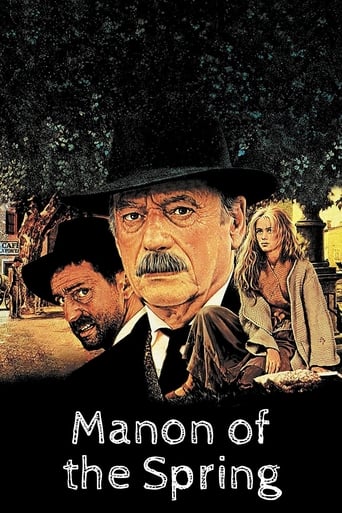
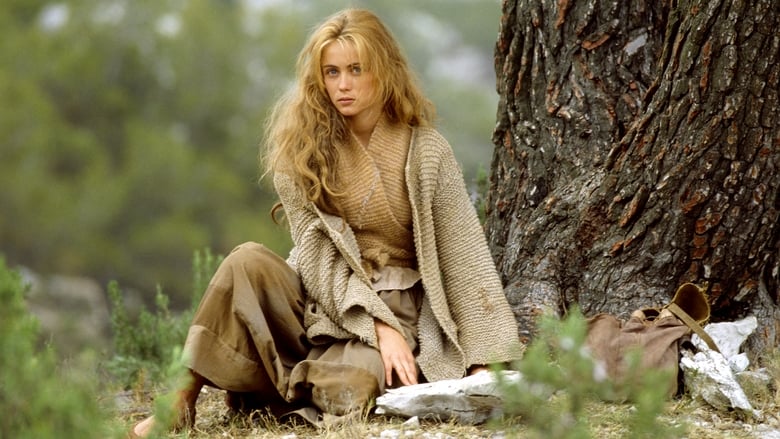
Manon of the Spring (1987)
In this, the sequel to Jean de Florette, Manon has grown into a beautiful young shepherdess living in the idyllic Provencal countryside. She plots vengeance on the men who greedily conspired to acquire her father's land years earlier.
Watch Trailer
Cast


Similar titles
Reviews
In my previous review of "Jean de Florette", I mentioned the movie "Chinatown". Well, there's a moment in "Manon of the Spring" where a city council is reunited to discuss the emergency of the recent shortage of water and through the anger and desperate frustration displayed by the farmers, I was reminded of the scene where Nicholson was amusingly looking at the sheep invading the L.A council and farmers protested about the absence of water. Watching Berri's movies before "Chinatown" would be recommended if only to give you the idea of how water is precious which makes Manon's vengeance even more delicious.Indeed, I expected the beautiful Emmanuelle Béart as the titular goat shepherdess to avenge the death of her father, whose hard work and gentleness was destroyed by the cruel stratagem of an evil Noah-Cross like old man constantly hiding behind the trees while his nephew was doing the dirty job, I got the taste of that vengeance but I didn't expect it to be as emotionally rewarding as what the final act had to offer. This is not just a credit to Marcel Pagnol, the author but of Claude Berri, the storyteller, who trusts enough his material not to try to make it more spectacular than what it is. When you have a good story, there's no need for artifices.After watching the first opus, Ugolin (Daniel Auteuil) and César (Yves Montand) were all familiar faces, we know the extremes they reached to get the land and grow their carnation, the film opens with these flowers as red as the blood it cost to make that miraculous little possible. But for César, the land was worth a life, because Jean wasn't his blood, he was an outsider. As simple as that, and when the film opens, he approaches his nephew with the same question that in the first film's opening, he tells him it's time to think of having children, it's like a sort of "now, where were we?", after having plotting to the point of death, let's think of life a little.César explains that the Soubeyrans have worked hard enough to make money, the lineage must go on to make sure there's always a heir, without one, even land loses its value, Jean's death becomes pointless. But we know we're in a Greek tragedy format so no evil can be redeemed and when Ugolin crosses the path of Manon and instantly falls in love with her, he doesn't know It yet, but the punishment has started. Convinced that she doesn't know about their secret, he starts a courting session, harboring a ridiculous hunter's outfit to impress her and in one of the movies' most powerful scenes, starts a small smooth talk that escalates (literally) through a chase and where, finally, out of breath, he ends up declaring his flame, as he has nothing else to provide, except his good fortune.We have a taste of Karma with this infatuation but the best is yet to come when Manon accidentally eavesdrop a discussion between two villagers who admit that they knew about the spring and didn't help Jean because it was none of their business, and later, she discovers the spring that feeds all the village and stops it, not only Ugolin and his flowers, but the whole town is punished by Manon. That will be their business after all. And when Ugolin takes his mule to go fetch the water, and is obviously exhausted by the heavy barrels, we think of Jean who went through the same nightmare, when all it took was to have a few words. Whoever killed by the water will perish by the water; this is a great tale of vengeance not because the culprits are punished but because they're punished the right way.The performances of the actors are integral to the film's success, Emmanuelle Béart says a lot without speaking, her eyes are like repressing all the feelings until the final implosion held behind her blond, fiery, almost leonine hair, Auteuil as Ugolin gives a dimension of pathos that goes beyond his ungrateful looks and becomes the collateral but acceptable victim of his uncle's malice. But the best is still from Montand, who as the patriarch, looks like a stubborn man still recluse behind the fortress of his own vileness until a final last revelation comes as the perfect vengeance and the best thing about it is that it doesn't even come from Manon, but life itself which establishes the total failure of all his projects, and he lived long enough to measure up the extent of his cruelty and that's how poetically justice worked, when someone is so cruel he only gets sympathy as his cruelty's victim.Marcel Pagnol was born the same day than Cinema and not very far from La Ciotat where the train made its iconic entrance, it's like he had this gift for authentically depicting human nature, reminding me this quote from Ebert: the more specific the story is, the more universal it becomes because the more it understands the characters, the better we do. That's the power of Pagnol, Berri and the actors, they created so specific characters that they immediately became real, this is high adult drama about things that happen in real life. Even someone who doesn't know much about farming, about water and love will get the many messages about love, greed, bigotry and karma.This is tale for the ages, and one of the greatest French movies that earned its commercial and critical success. I couldn't believe I waited so much time to finally see this masterwork, one that says as much about mother nature than human nature and shows that at least, mother nature played fair with men, only they underestimated how evil and greedy they could be, and how destiny could give them a taste of their own medicine.
When I saw Jean de Florette, I thought that Yves Montand jumped at the chance to play the role of Cesar Soubeyran (aka "Le Papet"), but he actually refused the role when first offered and only took it when his wife died. I have to wonder if he got the scripts for both movies or the first one, since in Manon of the Spring his character actually deepens and might be even more interesting to play (albeit not quite as villainous, he really does have an arc here), but at the same time the story dips somewhat in quality. It's not for the entire running time of the film - mostly it's in the third act, when the film turns into an unbelievable yarn full of revelations and twists to make it into a happy story of the utmost redemption (with maybe a bit of tragedy in retrospect to be sure). But Manon of Spring shows why having a strong ending, especially when a story runs from first part to second almost four hours in length, is very important.This time it's more about the 'legacy' of the Soubeyrans as it's 10 years later and, for reasons not made totally clear, the daughter of Jean (de Florette) is on her own as a shepherdess (her mother, also for reasons not totally clear, is singing opera again, which is odd since in the last film she said she couldn't do it anymore, but whatever). As she goes about her daily routine the Soubeyran nephew Ugel, played by Daniel Autreil, notices her going about her business (indeed, at one point, very nude and dancing around), and he falls in love with her. Of course falling in love is tantamount for him, even as his uncle demands that he marry and continue the family blood-line.Of course there is a lot of emotional baggage for the maybe 18 year old Manon (Emmanuele Beart, pretty much immaculate in beauty to the point I'm guessing that's why they hired her, some talent notwithstanding), and the question one asks is not so much if she'll take revenge on the wealthy people who drove her father to die and make her family sell the home via trickery with the spring, but when, and by what methods. This is also, of course, a PG movie and done in a classical style, so it would have to come from something much trickier. How she lays out her payback is really clever and makes for a compelling second half of the film (or maybe one quarter I should say) and it ends up involving most of the town itself.I think that with this story this time what's so effective is Berri's direction as a contrast in style with the material; this could very well be like a (semi-romantic) western set in the French countryside, with a lot of wide landscapes and greenery and land that can be walked around on, and while it's shot with an eye for beauty and the music scoring compliments it, the emotions are rather dark and twisted underneath. Autiel is still the actor who still has some complex emotions to play, but here it's not really about deception of this Florette farm-owner but about whether or not (or how soon/what to say) to ask this woman to be his wife and have his kids... which seems pretty close to impossible. Autiel is still very good, but somehow the character isn't quite as complex this time as in the first film - rather the whole dynamic is hinged upon what Manon knows and what he doesn't.It's not really Beart's fault that she doesn't get much to play here, but I wonder if Manon was better developed or had more to do in the book this is based on. Part of it is that she's supposed to be shy, but to this extent(?) I think this adds to what comes out as the over-wrought melodrama at times - she either looks concerned or cries through much of the film, maybe once or twice she has some joy to her - so it leaves her as kind of a not badly but slightly underwritten character. On the opposite side Montand does everything he can with what's he's given to do and makes this old man very sympathetic as he comes to grips with what he's done. A lot has to happen for that to really take place, but Montand is always there, even when (maybe especially when) the script lets him down with what amount, to me, to be soap opera revelations about lineage and who is really who in this story (if you can take a guess it might almost count as a spoiler... maybe).Manon of the Spring carries a lot of terrific craftsmanship, natural and wonderful acting, and some colorful supporting characters (well, maybe the real suitor for Manon is kind of two-dimensional, if that). I just wish the last 20 minutes weren't so disappointing.
The second half of Claude Berri's elegant two-part Provençal epic shares with 'Jean de Florette' the same sun washed, arid landscapes, the same rich tapestry of events, and many of the same hardy peasant characters. Here again is the unscrupulous landowner Le Papet and his weak-willed simpleton nephew Ugolin, along with the beautiful but untamed Manon, now grown to womanhood and living wild in the hills, where she decides to fight water with water (or a lack of it) by blocking the source of the vital spring supplying the nearby village.The sequel ties up all the narrative threads left dangling at the end of the earlier film (and as a result is more plot-heavy than its predecessor), but Manon's revenge against the men who (indirectly) murdered her father isn't as sweet as it should have been. After driving the love struck Ugolin to suicide (by simply ignoring his pathetic advances), she virtually disappears from the story, leaving Le Papet to a fate of his own design, outlined in some lumpy exposition before the heartbreaking conclusion.The rich local flavor and surprising unpretentiousness make it a worthwhile and often moving drama, but despite the title the film belongs to Yves Montand and Daniel Auteuil. Emmanuelle Béart, as Manon, doesn't have more than a dozen lines of dialogue, and her fashion model looks are a distraction.
Ten years after the death of Jean Cadoret, his wife has returned to the life of opera singer and his daughter Manon (Emmanuelle Béart) has grown up and become a gorgeous lonely shepherdess. Ugolin (Daniel Auteuil) is now a thirty year-old wealthy bachelor planting carnations. His grandfather Cesar Soubeyran (Yves Montand) presses him to get married to carry the name of their family since he is the last man alive. When Ugolin sees Manon on the fields, he falls in love with her, but the shy Manon is infatuated with the school teacher Bernard Olivier (Hippolyte Girardot). One day, Manon overhears the conversation of two locals about the vile action of Ugolin and Cesar and she plots revenge against the two scoundrels blocking the spring of the whole town. While the farmers and the dwellers despair and the mayor summons a water specialist from the city, the priest organizes a precession. Later Cesar has a conversation with the blind Delphine (Yvonne Gamy) that discloses a secret about his beloved Florette.Definitely "Jean de Florette" and "Manon des Sources" are among the best films I have ever seen. The revelation in the end of the story is unpredictable and closes this engaging story with golden key. The beauty of Emmanuelle Béart and the haunting music score are mesmerizing. I only regret that the Brazilian title is actually a spoiler. My vote is nine.Title (Brazil): "A Vingança de Manon" ("Manon's Revenge")


